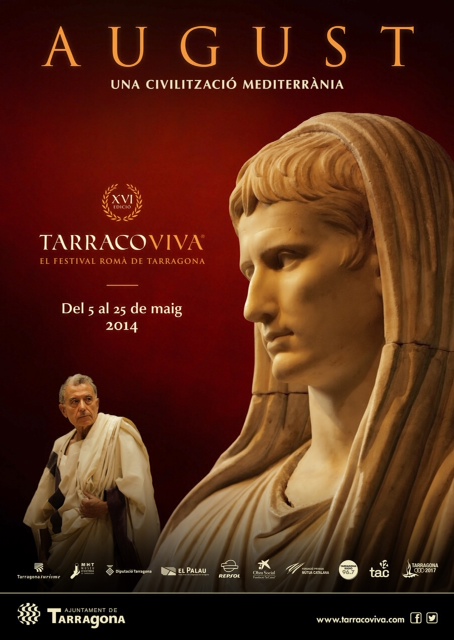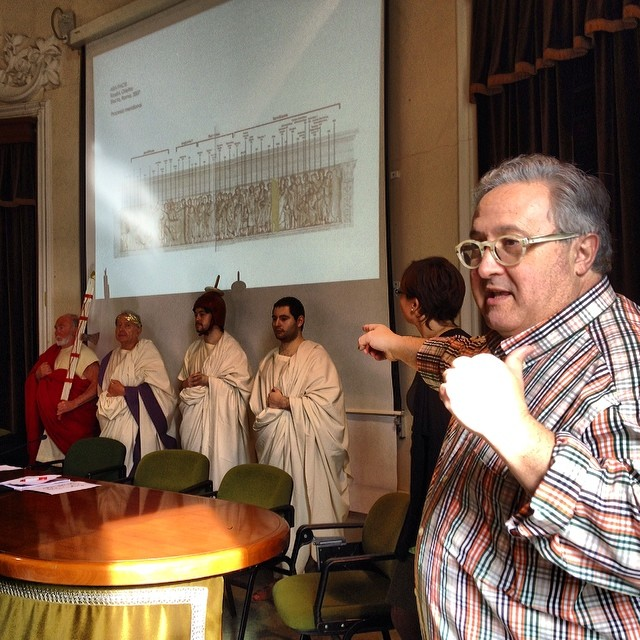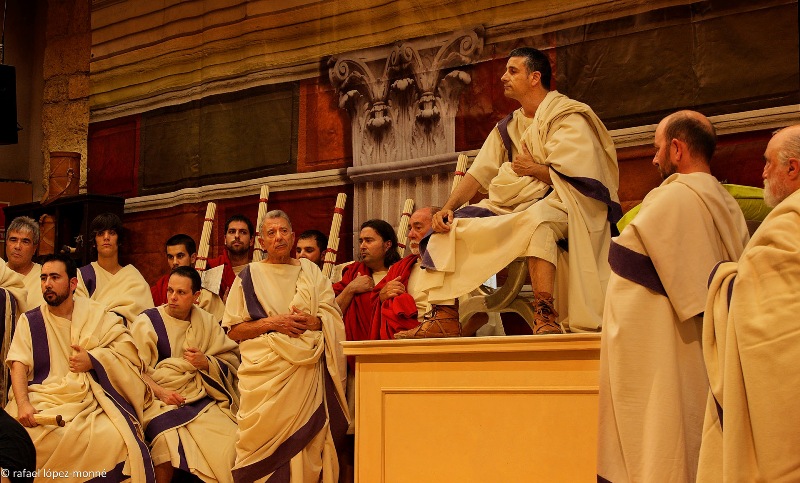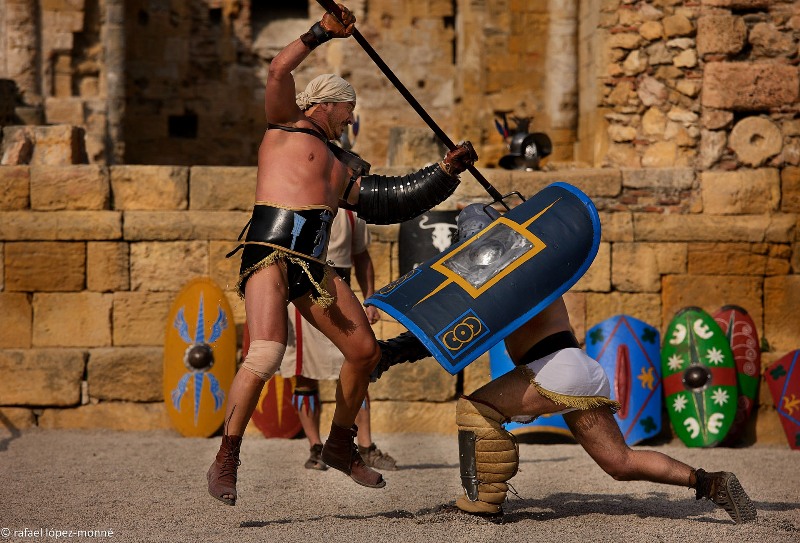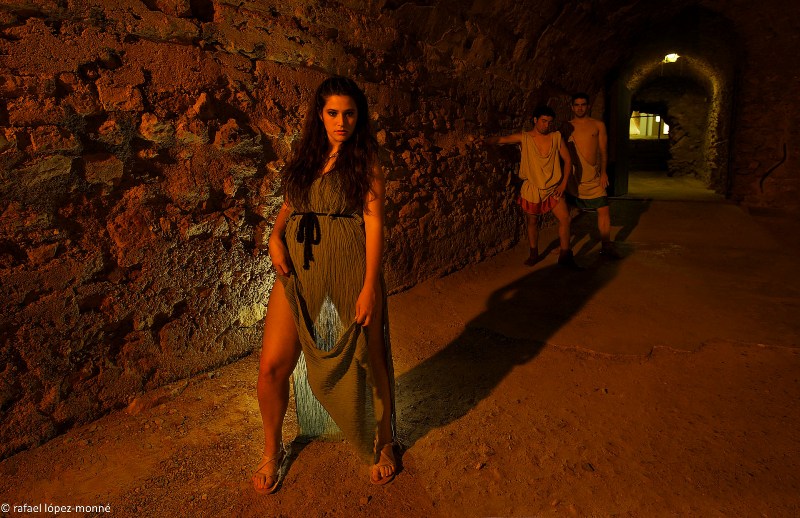Augustus, a Mediterranean civilization. Wraped into this tittle, a real declaration of intent, the 16th Edition of Tarraco Viva Festival, the International Roman festival, was introduced this week, due on May 5-25 in Tarragona. The reason why we are referring to this year’s Edition as a declaration of intent per se is, on one hand, the fact that the festival will be paying homage to the figure of Caesar Augustus, the great emperor, on what will be the 2nd millennium of his death, and on the other hand, because it commemorates the success of one civilization still perceived today as being the most brilliant one in human history. Magí Seritjol, the festival’s manager, already referred to this during the presentation of the official programme: “Augustus was responsible for a particularly brilliant moment in the human’s culture; the only moment in the history of the Mediterranean on which the entire length of its coasts became one in continuous progress, in a way never achieved before”. For that reason, according to Seritjol, Augustus can be considered as the architect of the first ever attempt to build what we know today as Europe; not from a Northern point of view though –as it actually happened–, but from a Mediterranean one.
For those unaware yet of what Tarraco Viva is about, we would say it is much more than a festival, although Seritjol will never admit such a thing, despite being him who came up with the idea –together with his brother Enric–, pushed it to become real, and has gone all the way with it right until now. Tarraco Viva is the most faithful historical recreation of the most glorious time of the city and one of the best reconstructions in the history of the Roman period. It is living history.
The fact of focusing this year’s edition on Augustus will cause the festival to be packed with all kind of innovations. Some of them are referred to its facilities. Thus, the Recinte Firal del Palau de Congressos will become, for example, a cultural centre for Augustus and his period, with over 300 scheduled events out of the 800 in total, a whole new record.
On this context, the recreation ‘Augustus, the power of the mask’, by Projecte Phoenix, will become the festival’s main activity, and will be unveiling and showing aspects about the emperor’s personal and familiar life, about his policy deeds, his vision of Rome and the world. The show will be available every Friday and Saturday during the festival.
One of the other great new things of the Tarraco Viva Festival this year will be the reproduction –wait for it – on a 1:1 scale of the Ara Pacis and the statue of Augustus of Prima Porta, which will be part of the exhibit ‘Augustus, a Mediterranean civilization’ and that will provide a closer look to the first emperor’s period in the form of audio tours. For what the monument Ara Pacis Augustae is concerned, that is, Augustus’ altar of peace, it is, without any doubt, one of the most important legacies of the Ancient Rome. Conceived in order to exalt the Pax Augusta, Ara Pacis has way more ingredients: iconographical, decorative, literary, religious, mythical, political and artistic ones, and at the same time, it is the portrait of the imperial family. Ara Pacis will be reconstructed then, for Tarraco Viva, using a reliable recreation of the 98 characters that are taking part on it.
The first weekend of the Festival (May 10-11) will be dedicated, mostly, for both families and children, and throughout the whole Sunday morning, the ‘Pueri festival Tarraco Viva’ will take place in Camp de Mart, by means of workshops and recreation activities for the youngest visitors. Over 6,000 schoolchildren are expected to visit the festival.
On the second weekend (May 17-18), Camp de Mart will become the epicentre of Roman gastronomy thanks to food and wine recreation workshops, speeches and presentations of products to be found back in Roman kitchens. That will be the moment of tasting ‘tapas’ created by the restaurants belonging to the ‘Associació Tarraco a Taula’. Finally, the third and last weekend will be focused on museums.
The different number of reconstruction groups that had been working for years in the Tarraco Viva Festival will be back this year, but with a number of innovations. This is the case, for instance, of the ‘Instituto Ars Dimicandi (Italy), which has been working on an extraordinary activity with more gladiators than ever before to commemorate the year of Augustus. Nemesis ARQ, Ludi Scaenici, Thaleia, Projecte Phoenix, or the Legio I Germanica, among others, will be also presenting brand new historical reconstructions.
For more information about the number of activities scheduled, check out the pre-official programmed (only in Spanish at the moment) attached to this post. Before that, though, make sure you buy a ticket to Tarragona, which is meant to make you go time travel back to the glorious period of Augustus. Ave Caesar!
Text: Ivan Rodon (@irodon a Twitter)
Translation: Artur Santos (@artur_1983 on Twitter)
Pictures: Rafael López-Monné (@lopezmonne a Twitter) / Ivan Rodon


